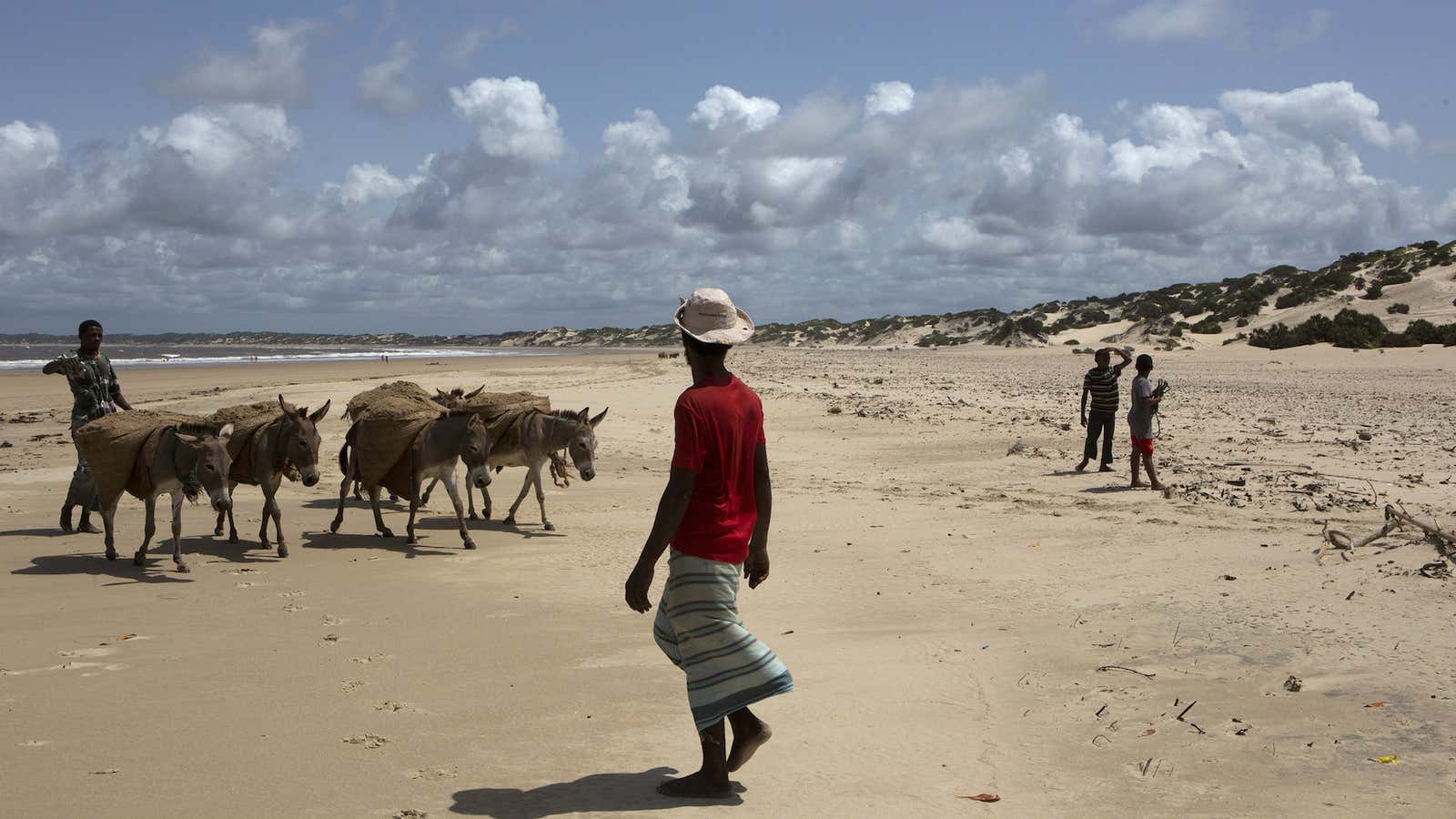African countries are beginning to worry about their donkeys. Niger announced this week that it was banning the export of the animal because demand, mainly from Asia, had reached worrying levels. Last month, Burkina Faso also announced a stop on donkey hides, stating that the animal had been “over exploited.”
Much of that demand comes from China, home to a shrinking population of donkeys whose gelatin, ejiao, is a prized medicinal ingredient, used in everything from aphrodisiacs to face cream. The donkey, used in rural and farming communities across China, has been gradually replaced by machinery. China’s population of donkeys has fallen to 6 million from 11 million in the 1990s and falls another 300,000 every year, according to government statistics.
No wonder Chinese businesses have shown a growing interest in donkeys from Namibia to Nigeria over the past few years. Earlier this year, Botswana arrested four people involved in a donkey hide smuggling syndicate with operations in Zimbabwe, Botswana, and China. Donkey slaughterhouses have also been opened in Kenya to meet Chinese demand. Last year South Africa was considering beginning a training program for farmers in anticipation of exporting donkeys to China’s Henan province.
According to the BBC, livestock sellers in Niger are abandoning the trade of other animals to go into the donkey business, where the animal can sell for as much as $145, up from just $34 before demand from Asia began growing. Some 80,000 donkeys have been exported so far this year, three times as many as last year, the country’s livestock ministry told the broadcaster.




